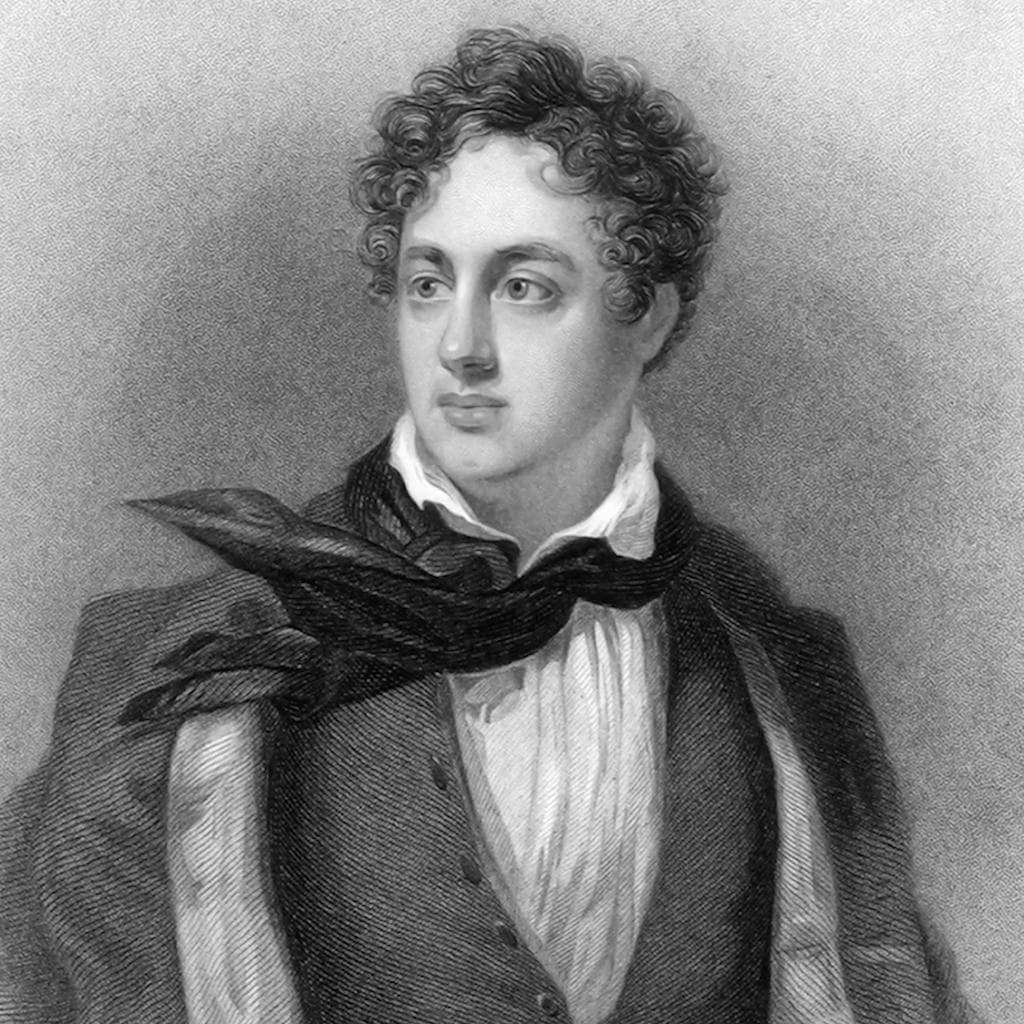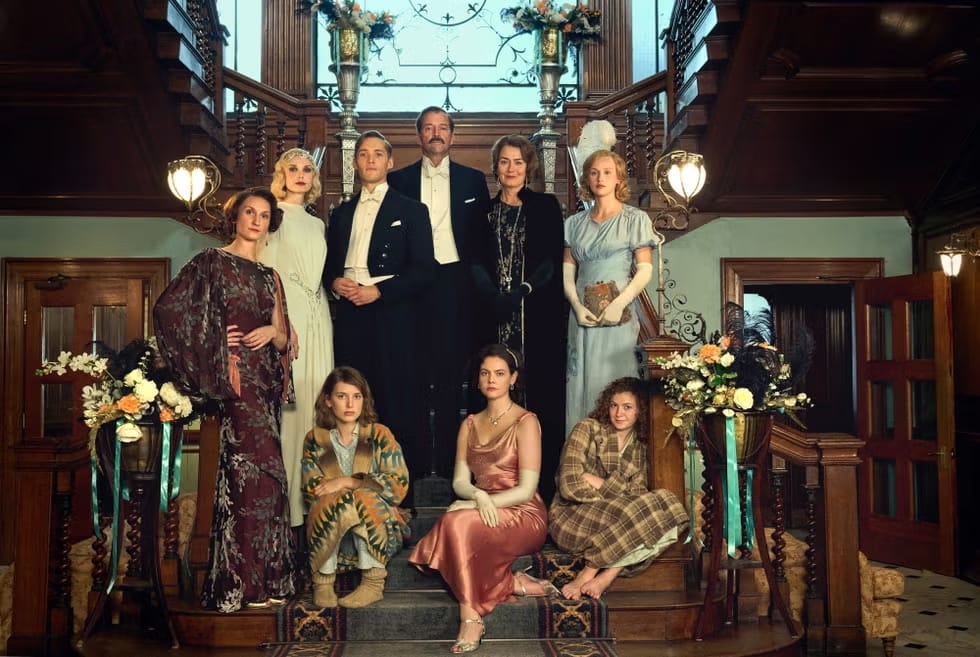The Death of a King
Welcome to Historical Heritage (previously the Highclere Castle trip giveaway), where we highlight elegance, history and regal stories every week. We also include news and interviews when applicable. Take a small break from our loud existence and enter a world of quiet elegance.
Fascinating History: The Scandalous Love Affair of Lady Caroline Lamb and Lord Byron

One of the most fascinating and scandalous stories in English aristocracy is the love affair between Lady Caroline Lamb and the famous poet Lord Byron. Their relationship was marked by intense passion, public drama, and a scandal that gripped Regency-era society.
A Fiery Encounter
Lady Caroline Lamb was the wife of William Lamb, later the 2nd Viscount Melbourne and future Prime Minister of the United Kingdom. Known for her beauty, wit, and eccentric behavior, Lady Caroline was a prominent figure in London’s high society. In March 1812, she met Lord Byron, the wildly popular and notoriously handsome poet who had just risen to fame with the publication of Childe Harold’s Pilgrimage. Their meeting was electric, and despite being married, Lady Caroline became infatuated with Byron almost immediately.
A Tumultuous Relationship
Their affair was brief but intense. Lady Caroline famously described Byron as “mad, bad, and dangerous to know,” a phrase that has become legendary in literary and social history. The relationship was passionate and volatile, characterized by wild emotional swings, public arguments, and obsessive behavior. Lady Caroline’s infatuation with Byron quickly turned into an all-consuming obsession, leading to public scenes that scandalized society.
Public Scandal and Aftermath
The affair ended almost as abruptly as it began, with Byron growing tired of Lady Caroline’s intense emotions and erratic behavior. He eventually broke off the relationship, which sent Lady Caroline into a downward spiral. Unable to accept the end of the affair, she continued to pursue Byron, sending him passionate letters and even attempting to confront him in public, much to the horror of her family and friends.
The scandalous nature of their affair became the talk of the town, with gossip spreading throughout aristocratic circles. Lady Caroline’s behavior was seen as deeply inappropriate for a woman of her standing, and her marriage to William Lamb suffered greatly. Despite the scandal, William Lamb remained loyal to his wife, though their relationship was never the same.
Literary Legacy
The affair had a profound impact on both Byron and Lady Caroline. Byron went on to write Don Juan, a satirical poem that many believe was partly inspired by his relationship with her. Lady Caroline, meanwhile, wrote a novel called Glenarvon, a thinly veiled account of her affair with Byron. The book was a sensation, shocking society with its depiction of aristocratic life and its barely disguised portrayal of Byron as the dark, brooding hero.
The story of Lady Caroline Lamb and Lord Byron is one of the most captivating episodes in the history of English aristocracy. It is a tale of forbidden love, obsession, and the destructive power of passion. Their affair not only rocked Regency society but also left a lasting imprint on English literature, immortalizing their tragic and scandalous relationship for generations to come.
New Period Show To Watch: 'Outrageous'

Bessie Carter has been revealed as the star of the upcoming period drama Outrageous.
In this new U and U&Drama series, Carter takes on the role of Nancy Mitford, bringing to life the true story of the Mitford sisters.
Freshly released stills from the six-part drama showcase Carter in character, along with glimpses of the wider cast.
Six Aristocratic Sisters
"The show, which is based on Mary Lovell's biography The Mitford Girls, follows “the story of six aristocratic sisters who refused to play by the rules, their often-scandalous lives making headlines around the world”.
"Set against the gathering storm clouds of the 1930s, masked by the decadence, frivolity and lavishness of British high society, Outrageous will bring the full, uncensored story of the Mitford sisters to the screen for the first time,” the synopsis adds.
"A story of family bonds, betrayals, public scandal, political extremism, love, heartache and even imprisonment – a family saga like no other, this is the Mitfords as they really were: unapologetic, outrageous and utterly human."
We are tracking this show for release in early 2025.
This Week in History: Death of King Macbeth of Scotland

On August 15, 1057, the death of King Macbeth of Scotland marked a dramatic turning point in Scottish history. Macbeth, whose life and reign have been immortalized in Shakespeare’s tragedy, was a complex figure whose demise fundamentally altered the Scottish throne's trajectory.
The Rise and Reign of Macbeth
Macbeth, a member of the Scottish nobility, rose to power through a combination of military prowess and political maneuvering. He became king in 1040 after defeating and killing King Duncan I in battle. His reign was characterized by relative stability and efforts to consolidate power, but it was also marked by political intrigue and conflict. The historical Macbeth is often seen as a more nuanced figure than the tyrant depicted in Shakespeare’s play, with his rule being both innovative and controversial.
The Battle of Lumphanan
The death of Macbeth occurred at the Battle of Lumphanan, a decisive conflict fought against the forces of Malcolm III, the son of King Duncan I. Malcolm, who had been in exile, sought to reclaim the Scottish throne and restore his family's rule. The battle was brutal, and Macbeth’s forces, despite putting up a valiant fight, were ultimately defeated.
The Aftermath and Historical Impact
Following his defeat, Macbeth was killed, and Malcolm III ascended to the throne as Malcolm III. Macbeth's death marked the end of his line of kingship and the restoration of the House of Dunkeld to power. This shift had profound implications for the Scottish monarchy and the political landscape of Scotland.
Macbeth's death also symbolized a period of significant transition in Scotland. Malcolm III's reign brought about a consolidation of power and the reestablishment of the Scottish monarchy’s influence, which laid the groundwork for future political developments.
Legacy
While Shakespeare’s Macbeth dramatizes the story with themes of ambition, guilt, and supernatural elements, the historical Macbeth remains a figure of significant interest. His life and death reflect the turbulent nature of medieval Scottish politics and the shifting allegiances that shaped the kingdom's history. The Battle of Lumphanan, and Macbeth’s subsequent death, represent a pivotal moment that reshaped Scotland’s royal lineage and set the stage for the future of the Scottish crown.
Highclere Castle Gin: Distilled from a Blend of Botanicals Grown on Highclere Castle’s Ancient Estate
Born from Highclere Castle, renowned for its parties and acclaimed for its taste. Highclere Castle Gin is the winner of over 200 international spirit awards with a triumphant 100-point score.

Highclere Castle Gin is distilled from a blend of botanicals grown on Highclere Castle’s ancient estate including vibrant oranges from the Victorian Orangery.
The Role of Lords and Ladies in Modern Farming

In the United Kingdom, the role of lords and ladies in farming has evolved significantly over the centuries. Traditionally associated with large estates and aristocratic privileges, the modern aristocracy has adapted to changing agricultural practices and societal expectations, using their land for a variety of farming activities.
Historical Context
Historically, British aristocrats were landowners whose estates included vast agricultural lands. During the medieval and early modern periods, their wealth and social status were closely tied to their ability to manage and profit from these lands. Large estates were worked by tenant farmers, and the management of agricultural production was a key aspect of maintaining their influence and economic power.
Transition to Modern Farming
The 20th and 21st centuries brought significant changes to the agricultural landscape in the UK. The decline of traditional estate management and the impact of industrialization led many aristocrats to reassess how they utilized their land. Today, many lords and ladies continue to play a role in farming, but their approaches have diversified and modernized.
- Sustainable Agriculture: Many contemporary aristocratic landowners have embraced sustainable and organic farming practices. These methods focus on reducing environmental impact, conserving natural resources, and promoting biodiversity. Estates often implement practices such as crop rotation, organic fertilizers, and reduced pesticide use.
- Diversification: To ensure the profitability and viability of their estates, many landowners have diversified their agricultural activities. This can include a mix of traditional farming with more modern approaches like agro-tourism, where land is used for activities such as guided farm tours, farm stays, and educational workshops. Some estates also engage in forestry, sheep farming, and other forms of land use that complement crop production.
- Conservation and Heritage: In addition to farming, many estates focus on conservation and preserving natural heritage. This includes maintaining historical landscapes, protecting wildlife habitats, and engaging in conservation projects. The commitment to preserving the historical and ecological value of the land is a key aspect of many modern aristocratic estates.
- Agricultural Innovation: Innovation is also a feature of modern farming on aristocratic estates. This includes the adoption of new technologies such as precision farming, which uses GPS and data analytics to optimize crop yields and reduce waste. Some estates are at the forefront of agricultural research and development, contributing to advancements in farming techniques.
Estates
One notable example is the Goodwood Estate in West Sussex, owned by the Duke of Richmond. The estate combines traditional farming with modern practices, including organic farming and the production of high-quality food products. The estate also hosts various events and experiences that highlight its agricultural heritage.
Another example is the Chatsworth Estate in Derbyshire, owned by the Duke and Duchess of Devonshire. Chatsworth is known for its commitment to sustainable farming, with initiatives that include organic vegetable production and conservation efforts to maintain the estate's natural beauty and ecological balance.
Love what we are doing here?
Stay subscribed for more next week as continue to improve and evolve this weekly mailing. As our audience grows, we will be able to start pulling in exclusive interviews and more in-depth story-telling.
Most importantly, we hope you enjoy this small weekly escape as much as we do!
The Eighth Inc. c/o Historical Heritage
46 Plains Road
Essex, CT 06426
©2024 Historical Heritage | hi@historical-heritage.com | Privacy Policy
